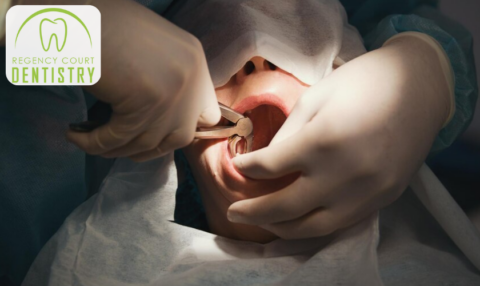How Wisdom Teeth Removal Aspendale Can Boost Your Dental Health
Wiki Article
Checking Out Different Sedation Options for a Comfortable Wisdom Teeth Removal Experience
The use of sedation throughout such treatments has become significantly usual to minimize anxiety and pain. With an array of sedation choices readily available, from local anesthetic to general anesthesia, each approach offers differing degrees of relaxation and pain control.Neighborhood Anesthesia
Local anesthesia is a frequently made use of approach for numbing particular locations of the mouth throughout wisdom teeth extraction procedures. By providing a regional anesthetic, such as lidocaine, a dentist can guarantee that the patient remains comfortable and pain-free throughout the extraction process. Regional anesthesia works by momentarily obstructing the nerves in the mouth, preventing them from sending out pain signals to the mind. This allows the dental practitioner to carry out the removal without triggering any pain to the patient.One of the main benefits of neighborhood anesthetic is its targeted numbing effect, which indicates that just the specific location being treated is impacted. This local approach decreases the danger of systemic side effects and permits a quicker recuperation post-procedure. Additionally, neighborhood anesthetic is considered to be a secure and regular technique in dentistry, with marginal threats involved when carried out by a skilled specialist.
Laughing Gas
Nitrous oxide, generally understood as laughing gas, is a kind of sedation commonly used in dental care to help patients loosen up during oral procedures. This sedation option enables the patient to stay receptive and mindful throughout the procedure while really feeling at ease and comfortable.When the mask is gotten rid of, the effects of the gas wear off swiftly, allowing people to resume their typical activities without lingering sedative effects. Nitrous oxide is appropriate for people of all ages, making it a flexible sedation option for knowledge teeth removals and other dental procedures.
Dental Sedation
Dental sedation, a pharmacological method utilized in dentistry, includes the administration of sedative medicines by mouth to generate a relaxed state throughout dental treatments. The medications prescribed for dental sedation belong to a class of medicines called benzodiazepines, which have sedative, anxiolytic, and amnesic residential properties.Among the main advantages of dental sedation is its convenience of management. Unlike intravenous sedation, oral sedation does not call for needles or injections, making it an extra comfortable option for individuals with a worry of needles. Additionally, oral sedation is thought about effective and risk-free when administered by skilled dental professionals. It is crucial for patients to comply with pre-operative instructions provided by their dental professional, such as abstaining from eating or consuming prior to the procedure to ensure the sedative medicine functions as intended.
IV Sedation
Provided intravenously by trained physician, IV sedation is a powerful approach made use of to cause a regulated state of deep relaxation and unfamiliarity throughout dental treatments. Unlike dental sedation, which can be unpredictable in its effects, IV sedation permits precise control over the degree of sedation, making it an optimal choice for complicated treatments like wisdom teeth removals.Throughout IV sedation, a sedative drug is provided straight right into the bloodstream through a capillary, enabling it to work swiftly and successfully. This method guarantees that the person remains comfy and unaware of the procedure while still maintaining important features such as breathing and heart price.
One of the primary advantages of IV this content sedation is its ability to supply a deeper level of sedation contrasted to other methods, making it especially ideal for clients with high levels of stress and anxiety or those going through considerable dental work (wisdom teeth removal aspendale). In addition, the impacts of IV sedation commonly diminish gradually after the procedure, minimizing the likelihood of grogginess or lingering adverse effects. Overall, IV sedation supplies a secure and effective alternative for guaranteeing a comfy and hassle-free experience during wisdom teeth removal

General Anesthesia
Having discussed the benefits of IV sedation for wisdom teeth extraction, the use of general anesthetic offers an alternate choice for individuals requiring a deeper level of unconsciousness during oral procedures. General anesthetic causes a controlled state of unfamiliarity, making sure the patient feels no discomfort or pain during the removal process. This technique is especially valuable for individuals with serious oral anxiousness, complex medical needs, or those going through multiple extractions simultaneously.General anesthetic is provided by a you could check here skilled anesthesiologist who very closely keeps track of the client's essential indications throughout the procedure. It includes using intravenous medications or inhaled gases to cause a state of unfamiliarity. While under general anesthesia, the patient will certainly not recognize the surgery, experience any discomfort, or have any recollection of the treatment later.
Although general anesthetic is risk-free when carried out by qualified specialists, it carries a somewhat higher threat contrasted to other sedation alternatives - wisdom teeth removal aspendale. Individuals thinking about general anesthetic for knowledge teeth extraction ought to discuss the prospective dangers and advantages with their dental professional or dental cosmetic surgeon to make a notified decision based upon their private demands and clinical history

Conclusion
In final thought, numerous sedation options are offered to make certain a comfy wisdom teeth extraction experience. Oral sedation and IV sedation deal much deeper degrees of leisure, depending on the patient's requirements.Nitrous oxide is suitable for patients of all ages, making it a flexible sedation option for wisdom teeth More Help extractions and various other oral procedures.

Report this wiki page